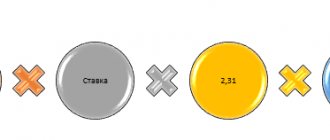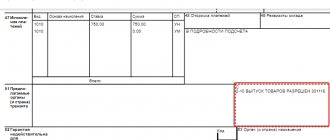In the Russian Federation, there are a wide variety of forms of economic entities, differing in many ways. Accordingly, the taxation of different forms of business may have significant differences. As for the gardening non-profit partnership (SNT), although it does not carry out entrepreneurial activities, it is obliged to pay certain taxes to the state budget. This question has some nuances and pitfalls, so let’s try to understand it in more detail. Let's look at how SNT is taxed in this article.
What is SNT, how is it created?
A gardening non-profit partnership (SNT) is a form of business in which an organization is created to implement the plans and objectives of a certain group of people who do not seek economic benefit in the form of profit. In other words, the partnership is created in order to protect the interests of individuals who have gardening plots in a certain territory. At the same time, SNT is created only on a voluntary basis, that is, coercion to join this organization is a violation of human rights and freedoms.
It should also be noted that since SNT is a non-profit organization, its goal is not to derive economic benefits in the form of profit.
In accordance with this formulation of the question, it is necessary to highlight the main goals for the achievement of which the SNT is formed, namely:
- solving general socio-economic issues that arise for owners of gardening plots;
- protecting the interests of SNT members before government agencies or commercial organizations;
- organization of settlements with enterprises providing services to the gardening partnership.
These goals are achieved only if all members of the horticultural non-profit partnership participate in the financial and economic activities of the organization. At the same time, for more accurate, complete and timely decision-making and implementation of necessary activities, a board and its chairman are elected, and a general meeting of SNT members is organized.
How to submit reports
It is better to send reports to government agencies digitally. The electronic view has the following advantages:
- The right to submit paper reports is limited by the number of employees and turnover of funds. Each department puts forward its own restrictions. The ability to accept a digital report has been implemented by all regulatory authorities and is available to organizations without restrictions.
- Sending forms over telecommunications networks saves time and simplifies record keeping.
You can submit reports to government agencies through “Personal Accounts” on official portals. This will require enhanced CEP for signing and protecting submitted reports. You can also use various programs and services to simplify the procedure.
"Astral Report 5.0":
- a convenient program will offer to fill out the current version of the form or declaration;
- the program has automatic reminders and will not let you miss submission deadlines;
- through the digital service you can send a request to government agencies and verify documents with counterparties;
- maintaining all accounting and tax reporting through a single system.
The essence of taxation of SNT
Any horticultural non-profit partnership is subject to mandatory registration with government agencies, and can carry out its activities only after completing this procedure. SNT is required to register with the tax authorities, and accordingly, its activities are subject to taxation. But if SNT is a non-profit organization, that is, one that does not have economic benefits in the form of profit, what can be the object of SNT taxation?
It should be noted that the SNT property includes various real estate objects, including common areas or access roads, as well as objects necessary for the SNT board to carry out its activities. In addition, any communication systems installed on the territory of SNT are also its property, including sewer, heating or irrigation systems.
A neighbor in the country is not a friend
Therefore, the explanations given by the Judicial Collegium for Civil Cases of the Supreme Court of the Russian Federation about who and under what conditions has the right not to pay contributions can help many if a conflict arises over the collection of money.
Our dispute began in one of the villages near Moscow, where TSN, a partnership of real estate owners, operated. In this partnership, a certain citizen acquired two plots. The lady never became a member of the partnership, and she did not have time to build anything on the site and in fact did not use the land. However, the partnership demanded contributions from her for the two years during which she owned the plots. The owner of the land did not pay anything, and TSN went to court. The partnership asked to collect fees for the use of the common property of the village for two years plus interest.
In court, a representative of the partnership explained that there was a decision of the general meeting of owners, which approved the cost estimate and determined the amount of monthly fees for plots “without buildings and infrastructure.” According to the plaintiff, if nothing is built on the plots, this is not a basis for exempting the owner from paying contributions. Local courts sided with the partnership.
The defendant did not agree with this decision and went all the way to the Supreme Court. There they studied the case and explained the main thing - the buyer of a plot or house is not obliged to immediately pay contributions to TSN. The fact of purchasing real estate does not automatically make citizens members of the partnership and users of common property. And the right to collect money from gardeners arises only if the partnership fulfills several conditions prescribed by law.
The legal aspects of running a dacha farm are discussed by RG experts in the “Legal Consultation” section
In our case, local courts in their decisions made reference to the then-current law “On horticultural, gardening, dacha non-profit associations of citizens” (Federal Law No. 66 of April 15, 1998). It stated that the absence of an agreement between the land owner and the partnership, as well as non-use of the land, would not be grounds for exemption from the obligation to participate in the maintenance of common property.
The Supreme Court did not agree with this conclusion. He first explained that a partnership of owners can be created by the owners of several adjacent houses if they are located on plots that have a common border, and “within which there are networks of engineering and technical support.” This is stated in Article 136 of the Housing Code.
The Supreme Court recalled that in the law “On the State Cadastre” (No. 221 of July 24, 2007) there is no such thing as a general border of land plots. But it is in the clarifications of the Ministry of Construction (No. 24192-0D/04 dated August 1, 2016).
The Supreme Court also recalled the position of the Constitutional Court, which concerned precisely this issue. The Constitutional Court said the following: the absence in the legislation of a unified regulation of the legal regime of common property in an apartment building and the common property of individual residential buildings is explained by the difference in the maintenance of private and apartment buildings.
The Supreme Court’s conclusion is that “the law does not connect the fact of acquiring ownership rights to an individual residential building with the emergence of a share in the ownership of common property.” The basis and procedure for obtaining rights to common property are prescribed by land and civil laws. And rights to common objects arise only after they are registered. The Supreme Court emphasized that state registration is necessary for common facilities serving private houses. Here is a list of them: utility networks, transformer substations, heating points, public parking lots, roads, etc.
Conclusion of the Supreme Court: “The law does not connect the fact of acquiring ownership rights to an individual residential building with the emergence of a share in the ownership of common property”
The association of owners, if it wants to represent their interests, must bring documents for common property to the registration authority. In the Unified State Register of Real Estate, a partnership can act as the owner of common property.
The high court specifically emphasized that the local courts did not find a single circumstance by which the defendant could be associated with the partnership of real estate owners. Therefore, the Supreme Court concludes, “the inclusion of the defendant as a member of the partnership and the imposition of the obligation to contribute funds for the maintenance of common property are not based on the law.” The dispute will be reconsidered, and the decisions of local courts will be overturned.
Classification of taxes and contributions
In accordance with the fact that there are several types of objects of taxation in the SNT, it is necessary to classify taxes according to this criterion. Thus, the following types of taxes should be distinguished:
| Tax | Description |
| Land tax | The territory is initially transferred to the partnership for free, fixed-term use, for which no tax is paid. After the SNT is officially registered, the territory becomes its property and is distributed among the participants of the partnership. From this moment on, they are the owners, and therefore are obliged to pay land tax to the state budget. The taxable base is the cadastral value of the plot as of January 1 of the year for which the calculation is made. For some categories of citizens, a system of preferential deductions is applied that reduce the tax base. The interest rate in this case is no more than 0.3%, and the tax is calculated as the product of the interest rate and the cadastral value of the site. |
| Property tax for legal entities | Objects of taxation are any real estate (except for land plots and environmental management facilities) that are on the balance sheet of SNT. The tax is calculated based on the residual value of the taxable object. |
Procedure for taxation of common lands from 2019
As we have already mentioned, from January 1, 2022, the Law of July 29, 2017 No. 217-FZ comes into force. According to it, a public land plot from state or municipal property and located within the boundaries of the SNT (gardening territory) can be provided as shared ownership to the owners of garden plots.
In this case, land tax will be paid by individuals participating in such shared ownership.
Also see “New clarifications of the Federal Tax Service of Russia in the letter on land tax.”
Procedure for paying taxes and fees
For those plots that are the property of individuals, that is, objects of individual use, only the owner is required to pay property tax. At the same time, he receives settlement receipts, which indicate the tax amounts, as well as all the indicators and characteristics necessary for the calculation.
As for the property tax of a garden non-profit partnership, that is, those plots that are objects of public use, the taxpayer is SNT as a legal entity. Accordingly, it must independently pay all taxes in accordance with settlement receipts in which this information is indicated. In addition, contributions to state funds are also the responsibility of the SNT.
What changes will happen in 2022
In short, the new year will bring a few changes for gardeners, not just benefits. Let's look at them in the table:
| № | Change | What will happen |
| 1. | Water license | This change applies to wells. It will not affect those who have already installed a well, as well as those who intend to use the wells for personal purposes (less than 100 cubic meters of water). Those who use more than the specified volume of water and do not obtain a license will face a fine (up to 1,000,000 rubles); a license costs 7,500 rubles. |
| 2. | Land payment | Here's a pleasant surprise: the fee is reduced. Tax rates for general purpose land are reduced from 1.5% to 0.3% of the cadastral value. All plots that fall into the category “for private buildings/farms” will be taxed at a rate of 0.3%. |
| 3. | Summer residents who are registered as individual entrepreneurs are exempt from income tax | This means that there will be no more inflated rates; it is not necessary to join SNT. Since you end up paying the same amount. |
| 4. | New rules for allocating plots | From January 1, the simplified procedure for providing a plot of land in SNT is no longer available. Now you need to collect and provide documents in the general manner. |
| 5. | New documentation for harvest sales | You can receive an exemption from personal income tax only by providing confirmation issued by the SNT board that the crop being sold was grown on a garden plot owned by the summer resident or his relatives. |
| 6. | Tax reduction for a donated dacha | Starting this year, you can already begin to apply new tax deductions that apply to dachas donated and sold in 2019 and later:
|
So, in 2022, 6 important changes appeared, 3 of which relate to tax benefits.
Accounting in SNT
All accrued taxes must be reflected in the accounting records of the gardening non-profit partnership. However, there are situations in which a professional accountant is not a member of the partnership, and therefore accounting becomes problematic for SNT. According to tax legislation, SNTs have the right to use a simplified taxation system, under which it is permitted not to keep accounting records in the full sense of the concept, but only to draw up a Book of Income and Expenses.
If a general taxation system is used, tax returns must be submitted to the tax authorities, according to which employees of regulatory services can check the correctness of the calculation of advance payments.
A practical example of calculating taxes and contributions
The horticultural non-profit partnership “Iskra” has been operating since January 1, 2008. It is not expected to conduct commercial activities in 2016. On the balance sheet of SNT there is a computer worth 20,000 rubles, a building worth 100,000 rubles. and a road costing 80,000 rubles. The salary of the chairman of the board of SNT is 10,000 rubles. per month.
SNT is under the general taxation regime. We will calculate the tax amounts that are subject to payment to the budget by SNT as a legal entity.
Property tax = (20,000 + 100,000 + 80,000) * 2.2% = 4,400 rubles.
Contributions to funds from wages:
- Pension Fund = 10,000 * 22% = 2,200 rubles;
- Compulsory medical insurance = 10,000 * 5.1% = 510 rubles;
- FSS = 10,000 * 2.9% = 290 rubles.
What kind of reporting does SNT submit to the simplified tax system?
When working on a simplified system, SNT must submit fewer forms than under the general tax regime.
Monthly
Every month, the partnership must report when recruiting employees under the terms of employment and GPC agreements.
| Form | Office to which it should be sent | Deadline |
| Form SZV-M | Pension Fund | Until the 15th of the next month. December must be submitted by January 17, 2022 |
If there have been personnel changes in the SNT staff (dismissal, hiring), then you should send:
| SZV-TD | Pension Fund | Reporting must be submitted by the 15th of the following month (intrastate changes). Within a day after the order is issued (hiring, dismissal) |
Quarterly
| 6-NDFL | Tax office | 30 days from the end of the quarter |
| RSV form | Tax office | Before the end of the month that follows the reporting period |
| 4-FSS | Social Insurance Fund | Until the 20th or 25th (paper and electronic form, respectively) |
Every year
Annual reports on the simplified tax system are due in 2022.
| Annual RSV | Inspectorate of the Federal Tax Service | January 31 |
| 2-TP (waste) | Territorial body of Rosprirodnadzor | Statistics are submitted by February 1 |
| SZV-STAZH | Pension Fund | Until March 1 |
| Declaration according to the simplified tax system | Inspectorate of the Federal Tax Service | Until March 31 |
| Annual booze. report | Inspectorate of the Federal Tax Service | Until March 31 |
| Water tax declaration | Inspectorate of the Federal Tax Service | No later than January 20 |
Calculation and payment of land and transport taxes for 2022 and beyond are carried out without filling out a declaration. These fees must be paid by March 1, 2022. To monitor the accuracy of calculations, the Federal Tax Service will notify taxpayers by email or regular mail. The notification will indicate all data about the taxable object and the rate applied to the object, as well as the amount of tax to be paid. If the information of the Federal Tax Service differs from the calculations of the legal entity, then the correct calculation should be sent to the department along with an objection. Tax authorities are required to consider the request 1 month in advance.
The deadline for making advance payments remains the same: 30 days are allotted for this from the end of the quarter.
The accounting report on the simplified tax system includes a balance sheet and a profit and loss statement. Appendix No. 6 to the accounting report contains data for disclosing information about the expenditure of funds.
Whether SNT must submit statistics to Rosstat in 2022 depends on whether the partnership falls under the category of small business. You can find out more on the Rosstat website by entering the organization’s TIN. Upon request, the department’s electronic portal provides the correct list of forms that the organization must fill out and submit.
Benefits for retired summer residents
The first thing worth noting is receiving a property tax benefit. But a pensioner can receive benefits only for one object: a dacha or an apartment. The citizen himself chooses which object the benefit applies to.
Local governments can completely exempt pensioners from taxes.
You should find out about this possibility from your local social welfare authorities.
The second thing worth mentioning is income tax. If a pensioner gives a dacha or gives land to persons who are not close relatives, the one who receives the dacha as a gift must pay tax. The pensioner pays nothing. In case of sale of property:
| № | When a pensioner does not pay tax | When does a pensioner pay tax? |
| 1 | A pensioner does not pay tax if he has owned a dacha for more than 5 years. | In all other cases, you will have to pay 13% of the income, that is, proceeds from the sale of the plot (tax non-residents - 30%) |
| 2 | If the dacha was donated or inherited more than 3 years ago, contributions are canceled. |





